Current trends in Russian public opinion toward the war
What are the trends in Russian public opinion regarding the war and support for the Putin regime?
By Vladimir Milov December 11, 2023
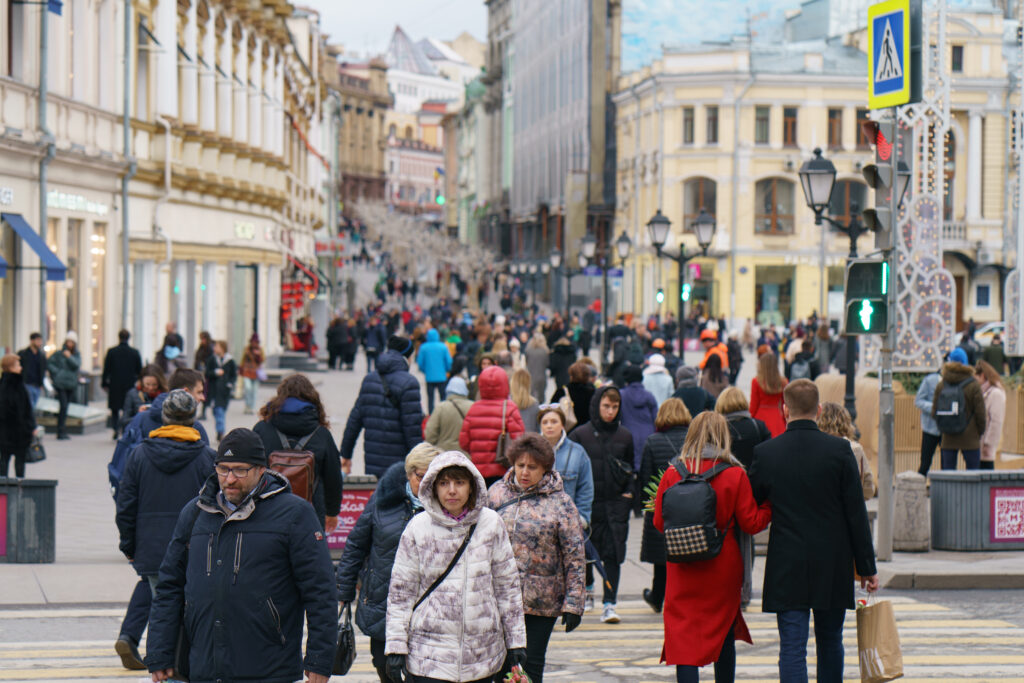
What are the trends in Russian public opinion regarding the war and support for the Putin regime?
By Vladimir Milov December 11, 2023

Some commentators have lately suggested that support for both among Russians is “rock solid” and society is “rallying around the flag.“ Is it true? How to measure public opinion in a repressive totalitarian state like Russia of today?
The latter issue is indeed tricky — in an environment where an ordinary Russian may get a prison term for publicly expressing their discontent with Putin and his policies, people are wary of straightforward questions and answers. Many pollsters report a record high percentage of refusals to answer polling questions, up to 80–90% of respondents.
However, multiple years of observations of Russian opinion polling trends suggest at least four simple rules which should always be followed when analyzing polling data from Russia:
Some commentators have lately suggested that support for both among Russians is “rock solid” and society is “rallying around the flag.” Is it true? How to measure public opinion in a repressive totalitarian state like Russia of today?
The latter issue is indeed tricky — in an environment where an ordinary Russian may get a prison term for publicly expressing their discontent with Putin and his policies, people are wary of straightforward questions and answers. Many pollsters report a record high percentage of refusals to answer polling questions, up to 80–90% of respondents.
However, multiple years of observations of Russian opinion polling trends suggest at least four simple rules which should always be followed when analyzing polling data from Russia:
Regarding point 4, recently, there has been an important development proving the existence of very serious problems of public support for Putin’s regime. In the end of September, the head of WCIOM polling agency, Valery Fedorov, gave a detailed interview to RBC, basically admitting that the active support for Putin’s war against Ukraine is minimal, and most Russians actually don’t want the war.
This admission is nothing short of sensational, since not only WCIOM has traditionally been Russia’s most Kremlin‑loyal pollster, but Fedorov himself officially serves as an advisor to the first deputy head of the Kremlin administration. Fedorov’s key points are:
Regarding point 4, recently, there has been an important development proving the existence of very serious problems of public support for Putin’s regime. In the end of September, the head of WCIOM polling agency, Valery Fedorov, gave a detailed interview to RBC, basically admitting that the active support for Putin’s war against Ukraine is minimal, and most Russians actually don’t want the war.
This admission is nothing short of sensational, since not only WCIOM has traditionally been Russia’s most Kremlin‑loyal pollster, but Fedorov himself officially serves as an advisor to the first deputy head of the Kremlin administration. Fedorov’s key points are:
The very title of Fedorov’s interview is “There’s always a fig sign behind their back,“ meaning that Russians in general have a fair share of skepticism toward the authorities, and disregard public expressions of loyalty.
Of course, the interview, if one reads it in detail, contains a lot of references to Putin and his policies, and Fedorov claims that, on the background of the general skepticism about the war, “Russians still think that we can’t afford to lose the war now that we’re in it” (we’ll come to that argument later).
But this is likely the first ever large‑scale admission of general public skepticism toward the war, and little enthusiasm for it, by a professional pollster representing Putin’s administration — which also coincides with other available polling data on the matter.
All this is quite far from perceptions of “predominant support for Putin and the war among Russians” that is widespread in the West.
Fedorov’s conclusions are widely supported by other pollsters as well. At the end of October, researchers from an independent polling group called Russian Field conducted another round of regular questioning of Russians about the so‑called “special military operation.” Some of the most important conclusions are:
The very title of Fedorov’s interview is “There’s always a fig sign behind their back,“ meaning that Russians in general have a fair share of skepticism toward the authorities, and disregard public expressions of loyalty.
Of course, the interview, if one reads it in detail, contains a lot of references to Putin and his policies, and Fedorov claims that, on the background of the general skepticism about the war, “Russians still think that we can’t afford to lose the war now that we’re in it” (we’ll come to that argument later).
But this is likely the first ever large‑scale admission of general public skepticism toward the war, and little enthusiasm for it, by a professional pollster representing Putin’s administration — which also coincides with other available polling data on the matter.
All this is quite far from perceptions of “predominant support for Putin and the war among Russians” that is widespread in the West.
Fedorov’s conclusions are widely supported by other pollsters as well. At the end of October, researchers from an independent polling group called Russian Field conducted another round of regular questioning of Russians about the so‑called “special military operation.” Some of the most important conclusions are:
The latter trend — that the majority of Russians support ending the war with negotiations over continuation of combat — is also supported by Levada Center data, which had consistently demonstrated the decline of support for continuing the war over the last several months.
In November, Levada Center reported that the number of those who wish to continue the fighting in Ukraine stood at 36%, whereas the number of those wishing for peace talks — at 57%.
The latter trend — that the majority of Russians support ending the war with negotiations over continuation of combat — is also supported by Levada Center data, which had consistently demonstrated the decline of support for continuing the war over the last several months.
In November, Levada Center reported that the number of those who wish to continue the fighting in Ukraine stood at 36%, whereas the number of those wishing for peace talks — at 57%.
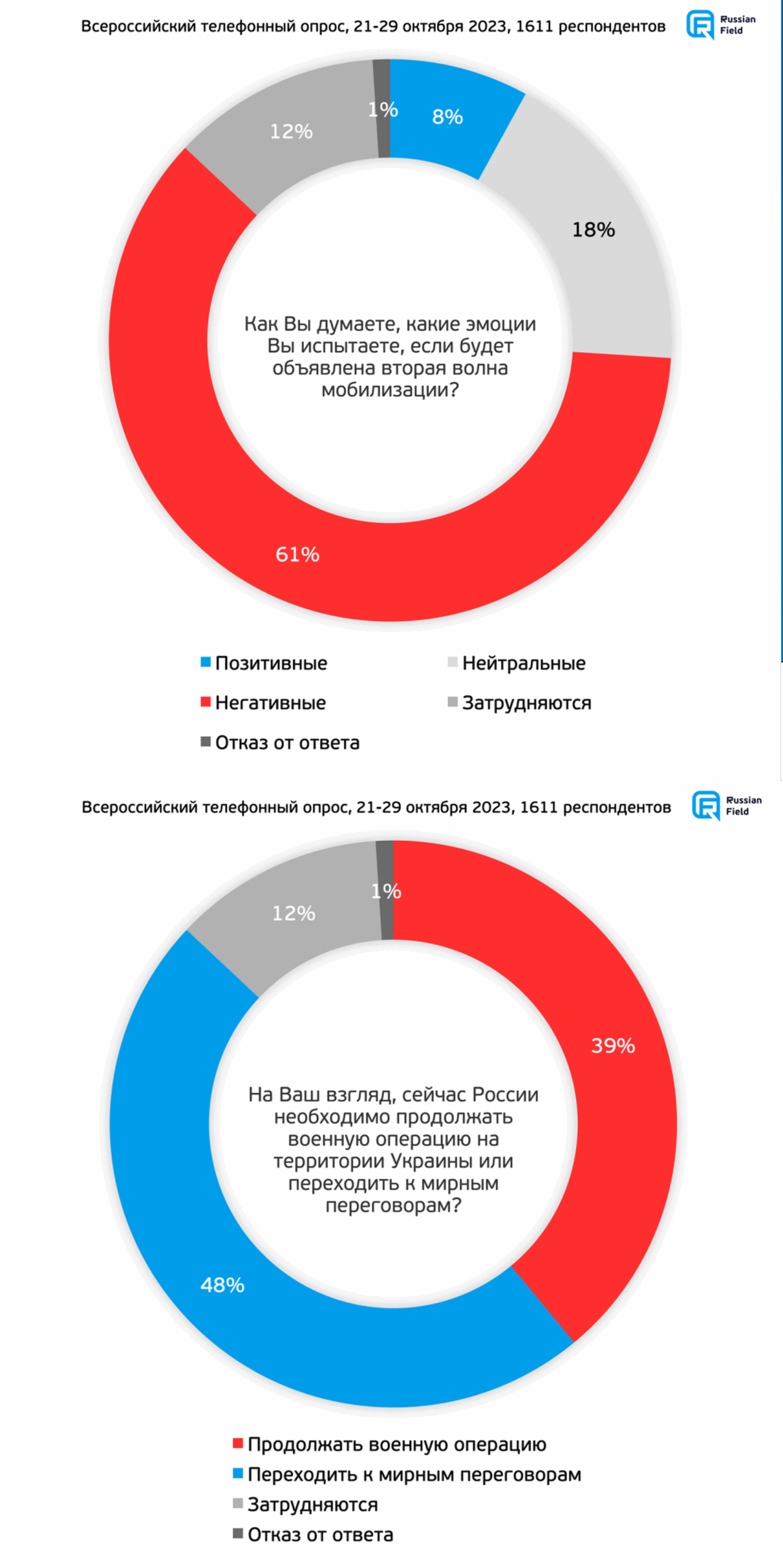

The former trend (rejection of the second wave of military mobilization) has also been firm over time and acts as a near‑prohibitive factor for Putin’s potential decision on a second round of mass mobilization.
In the fall of 2022, the first wave of mass mobilization was met with overwhelming negativity by the Russian public, and the rejection of a possible second wave has been almost universal (according to the Russian Field survey, only 8% view a potential second wave of mobilization “positively”).
This is actually a very important factor to assess the quality of Putin’s manpower on the battlefield in Ukraine for months and years to come. Recent protests of wives of mobilized soldiers against the lack of rotation of troops at the front for more than a year illustrate how serious the pressure is on Putin to refresh his exhausted troops. However, the potential second wave of mobilization would present a serious challenge, as it would raise tensions and confrontation with the society — probably to a much bigger extent than in the fall of 2022.
Back then, Russian authorities largely used up most of their potential to mobilize people who were more or less ready/willing to go fight, and the next time, the reluctance will be much stronger.
The next indirect indication of Russians' exhaustion with the war can, for instance, be derived from the recent Levada Center poll on questions that Russians may be interested in asking Vladimir Putin during his “direct line” TV conversation with the Russians scheduled for December 14th. The question was open; respondents indicated their priorities as they have chosen.
“Ending the war” is clearly dominating the field above everything else with 21%, with other top questions including concerns over deteriorating social economic situation, low salaries and wages, rising prices, etc. — 6–8% each. Positivity about the current situation is generally absent in respondents' replies.
On the social and economic situation, Levada Center has been conducting a series of polls on consumer confidence (), which show a sharp drop in economic optimism since 2022.
According to the polling, the share of people who say that their economic situation is “bearable” or “totally fine” has shrunk to 25% or below, whereas the share of those who call it “difficult but somehow bearable” or “unbearable” jumped above 70%. Despite many pundits in the West arguing that the Russian economy is “doing OK,“ Russians feel strongly negative about it.
The former trend (rejection of the second wave of military mobilization) has also been firm over time and acts as a near‑prohibitive factor for Putin’s potential decision on a second round of mass mobilization.
In the fall of 2022, the first wave of mass mobilization was met with overwhelming negativity by the Russian public, and the rejection of a possible second wave has been almost universal (according to the Russian Field survey, only 8% view a potential second wave of mobilization “positively”).
This is actually a very important factor to assess the quality of Putin’s manpower on the battlefield in Ukraine for months and years to come. Recent protests of wives of mobilized soldiers against the lack of rotation of troops at the front for more than a year illustrate how serious the pressure is on Putin to refresh his exhausted troops. However, the potential second wave of mobilization would present a serious challenge, as it would raise tensions and confrontation with the society — probably to a much bigger extent than in the fall of 2022.
Back then, Russian authorities largely used up most of their potential to mobilize people who were more or less ready/willing to go fight, and the next time, the reluctance will be much stronger.
The next indirect indication of Russians' exhaustion with the war can, for instance, be derived from the recent Levada Center poll on questions that Russians may be interested in asking Vladimir Putin during his “direct line” TV conversation with the Russians scheduled for December 14th. The question was open; respondents indicated their priorities as they have chosen.
“Ending the war” is clearly dominating the field above everything else with 21%, with other top questions including concerns over deteriorating social economic situation, low salaries and wages, rising prices, etc. — 6–8% each. Positivity about the current situation is generally absent in respondents' replies.
On the social and economic situation, Levada Center has been conducting a series of polls on consumer confidence (), which show a sharp drop in economic optimism since 2022.
According to the polling, the share of people who say that their economic situation is “bearable” or “totally fine” has shrunk to 25% or below, whereas the share of those who call it “difficult but somehow bearable” or “unbearable” jumped above 70%. Despite many pundits in the West arguing that the Russian economy is “doing OK,” Russians feel strongly negative about it.
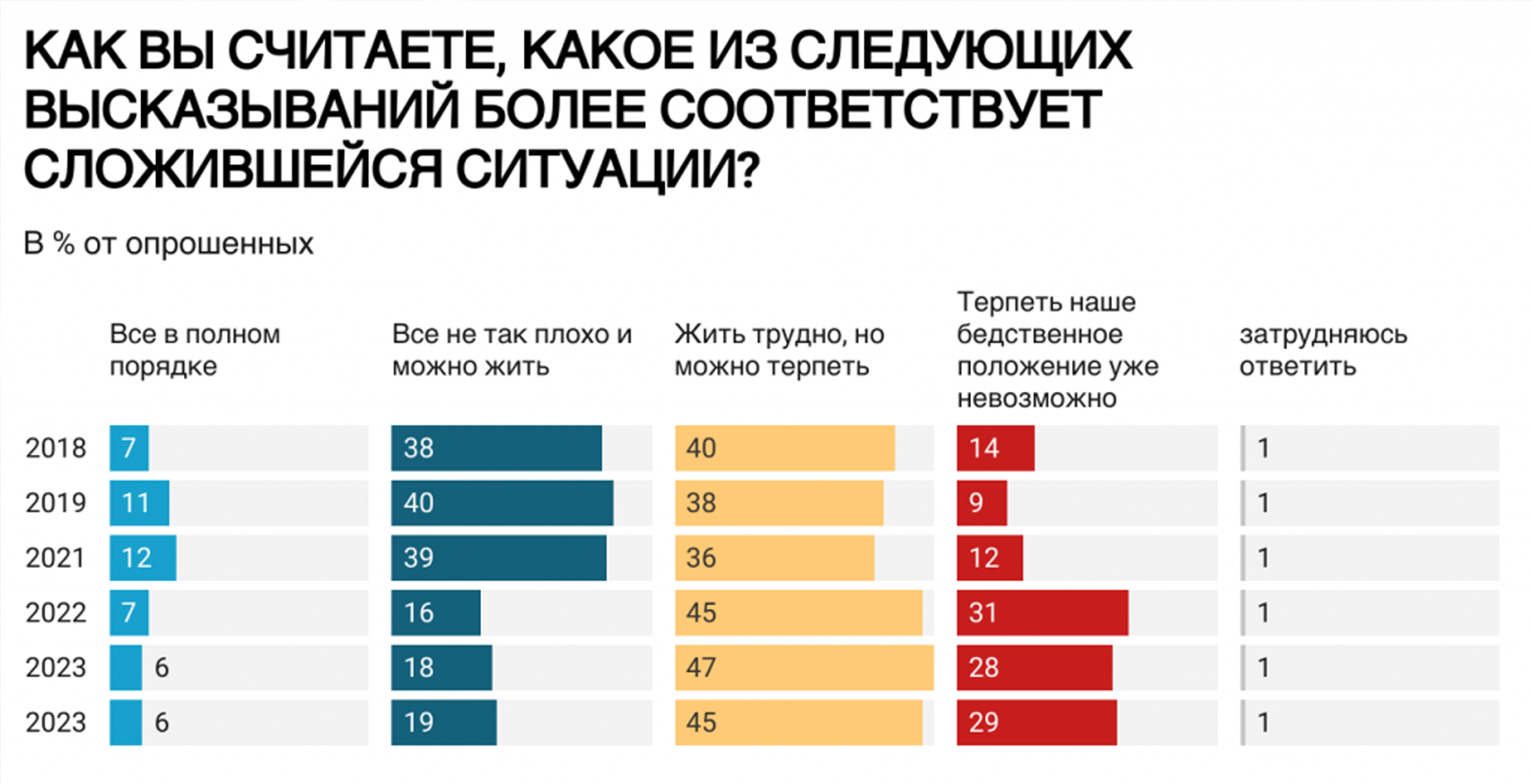

Western publications about the overall support for the war often quote the 70–80% figure of support for the “special military operation” from the polls as “proof” that the vast majority of Russians are rallying behind Putin and his war.
However, a brief look at these very polls — be it Levada or Russian Field — suggests that a significant portion (from a third to a half) of people who generally express positive opinions on issues related to waging the war are pictured in light blue — “more support than oppose,“ expressing significant reservations about their “support” to the extent which effectively nearly diminishes it, with only a surface wrapping of loyalty remaining.
The share of those in dark blue — “unconditionally support” — is usually no more than 35–40%, clearly fading over time; Levada puts this at 39% in November, way down from 53% peak in March 2022. When the two groups are added up, it produces the often‑quoted figure of 70–80% “support” for the war. But this is methodically incorrect, as the “light blue” group has significant reservations about the situation, and by all means can’t be considered “solid supporters” of the war — these are, mostly, people brainwashed by propaganda about “a NATO threat,” etc.
Another interesting question — as was raised above — is the fact that many Russians, who basically express their discontent and fatigue with the war, at the same time say that “we can’t afford to lose the war.“ This is interpreted by some as “rallying around the flag” — just another version of “my country, right or wrong.”
While such sentiment truly exists to a strong extent — which is confirmed by various pollsters — a more important question is about what these people are ready to do regarding their desire “not to afford to lose the war.” Are they themselves ready to go to fight? Clearly no — the above cited universal rejection of a potential second wave of mobilization obviously proves that. Another proof is near‑total failure of the authorities to recruit volunteers for the front across Russia.
The volunteer recruitment campaign has been ongoing since the beginning of the full‑scale invasion, and volunteers are being offered very generous pay — up to 10 times the median salary in many regions. However, recruitment efforts have largely failed — the numbers of actual volunteers drafted are not matching the bravado in reports by Russian officials, as proven by many analyses — like the one done by the Conflict Intelligence Team.
Drafting kiosks placed for long months in the central squares of most Russian cities stay largely empty, as can be clearly independently observed. Despite stating “support” for Putin’s “special military operation,“ Russians in reality are not rushing to participate in it themselves.
So, what’s the “my country, right or wrong” type of “support” really worth, when people are actually not ready to do anything to help “win” the war?
Not much, really. The experience of wars in Afghanistan in the 1980s and Chechnya in the 1990s (the second Chechen War of 2000s was a short campaign in terms of large‑scale combat operations) shows that such conformist “support” tends to essentially vanish over time.
This historic trend is also being confirmed today: both Levada Center and Russian Field polls suggest that there’s been a gradual erosion of support for the war since the peak in the spring of 2022, with that trend being very clear, albeit not as fast as many would wish.
To sum up: there’s growing fatigue and fading enthusiasm about the war among Russians, with these trends clearly progressing over time, creating serious public opinion constraints for Putin in continuing the war. A deteriorating economic situation is also adding up to popular negativity.
While people prefer to hide their negative sentiment on the background of “patriotic” upheaval, propaganda and repression, there’s a lot of data which reveal the true perception of the situation, which is fairly gloomy.
Among the worrying trends the two are most important.
First, there’s a consistent part of the society — around 35–40% — which consciously supports Putin’s aggression. That is a large portion of the society, and that is bad news.
However, the good news is that it’s not a majority, that it’s not an unusually high share for historic examples of countries intoxicated with totalitarian imperialist propaganda, and that an unusually high proportion of true supporters of the war is concentrated among Russians aged 55 or older (which are also the most faithful consumers of TV propaganda). Young generations tend to be far less loyal — which gives a lot of room for longer term optimism.
The second worrying trend, as discussed above, is the notion that Russia “still has to win the war and can’t afford to lose,” despite a fair share of skepticism about the war.
This is truly widespread — but, as was also mentioned above, is rather passive and not supported by an inclination to take any action to help the country “win” the war. And, as experiences of past wars show, such sentiment usually fades over time as fatigue mounts.
Why then are some opinion polling experts expressing much more pessimistic views about Russian public opinion than their actual data suggest? It probably has to do a lot with the effect summarized in the famous quote attributed to Winston Churchill — “The best argument against democracy is a five‑minute conversation with the average voter.“ Although Churchill may have never actually said it, the formula describes quite well the fatigue (particularly of academics who may have less professional patience than politicians or civil society activists working grass roots) from permanently interviewing masses of frustrated, confused, brainwashed people who lack a systemic worldview and easily shift between various propaganda narratives.
But that is not uncommon for authoritarian repressive societies living under the clout of propaganda for decades. The good news here is that the massive, dominating pro‑war sentiment, that is often mentioned by Western commentators, is, in reality, nonexistent — the actual picture is different.
Let’s also conclude with addressing a much darker narrative that is often portrayed by Western commentators: that the Russian people are somehow genuine imperialists by nature, that the desire to conquer other lands is “embedded” in their DNA. This narrative is actually quite popular, but, in reality, not supported by actual evidence.
Take aggression against Ukraine. To measure true Russian attitudes toward the idea of conquering Ukrainian lands, it would be helpful to look at polls conducted right before the invasion: was there an actual bottom‑up demand for grabbing Ukrainian land from the Russian society? Levada Center’s pre‑war poll conducted between February 17–21, 2022, right before Putin’s full‑scale invasion of Ukraine, suggested the following:
Western publications about the overall support for the war often quote the 70–80% figure of support for the “special military operation” from the polls as “proof” that the vast majority of Russians are rallying behind Putin and his war.
However, a brief look at these very polls — be it Levada or Russian Field — suggests that a significant portion (from a third to a half) of people who generally express positive opinions on issues related to waging the war are pictured in light blue — “more support than oppose,” expressing significant reservations about their “support” to the extent which effectively nearly diminishes it, with only a surface wrapping of loyalty remaining.
The share of those in dark blue — “unconditionally support” — is usually no more than 35–40%, clearly fading over time; Levada puts this at 39% in November, way down from 53% peak in March 2022. When the two groups are added up, it produces the often‑quoted figure of 70–80% “support” for the war. But this is methodically incorrect, as the “light blue” group has significant reservations about the situation, and by all means can’t be considered “solid supporters” of the war — these are, mostly, people brainwashed by propaganda about “a NATO threat,“ etc.
Another interesting question — as was raised above — is the fact that many Russians, who basically express their discontent and fatigue with the war, at the same time say that “we can’t afford to lose the war.” This is interpreted by some as “rallying around the flag” — just another version of “my country, right or wrong.”
While such sentiment truly exists to a strong extent — which is confirmed by various pollsters — a more important question is about what these people are ready to do regarding their desire “not to afford to lose the war.“ Are they themselves ready to go to fight? Clearly no — the above cited universal rejection of a potential second wave of mobilization obviously proves that. Another proof is near‑total failure of the authorities to recruit volunteers for the front across Russia.
The volunteer recruitment campaign has been ongoing since the beginning of the full‑scale invasion, and volunteers are being offered very generous pay — up to 10 times the median salary in many regions. However, recruitment efforts have largely failed — the numbers of actual volunteers drafted are not matching the bravado in reports by Russian officials, as proven by many analyses — like the one done by the Conflict Intelligence Team.
Drafting kiosks placed for long months in the central squares of most Russian cities stay largely empty, as can be clearly independently observed. Despite stating “support” for Putin’s “special military operation,” Russians in reality are not rushing to participate in it themselves.
So, what’s the “my country, right or wrong” type of “support” really worth, when people are actually not ready to do anything to help “win” the war?
Not much, really. The experience of wars in Afghanistan in the 1980s and Chechnya in the 1990s (the second Chechen War of 2000s was a short campaign in terms of large‑scale combat operations) shows that such conformist “support” tends to essentially vanish over time.
This historic trend is also being confirmed today: both Levada Center and Russian Field polls suggest that there’s been a gradual erosion of support for the war since the peak in the spring of 2022, with that trend being very clear, albeit not as fast as many would wish.
To sum up: there’s growing fatigue and fading enthusiasm about the war among Russians, with these trends clearly progressing over time, creating serious public opinion constraints for Putin in continuing the war. A deteriorating economic situation is also adding up to popular negativity.
While people prefer to hide their negative sentiment on the background of “patriotic” upheaval, propaganda and repression, there’s a lot of data which reveal the true perception of the situation, which is fairly gloomy.
Among the worrying trends the two are most important.
First, there’s a consistent part of the society — around 35–40% — which consciously supports Putin’s aggression. That is a large portion of the society, and that is bad news.
However, the good news is that it’s not a majority, that it’s not an unusually high share for historic examples of countries intoxicated with totalitarian imperialist propaganda, and that an unusually high proportion of true supporters of the war is concentrated among Russians aged 55 or older (which are also the most faithful consumers of TV propaganda). Young generations tend to be far less loyal — which gives a lot of room for longer term optimism.
The second worrying trend, as discussed above, is the notion that Russia “still has to win the war and can’t afford to lose,“ despite a fair share of skepticism about the war.
This is truly widespread — but, as was also mentioned above, is rather passive and not supported by an inclination to take any action to help the country “win” the war. And, as experiences of past wars show, such sentiment usually fades over time as fatigue mounts.
Why then are some opinion polling experts expressing much more pessimistic views about Russian public opinion than their actual data suggest? It probably has to do a lot with the effect summarized in the famous quote attributed to Winston Churchill — “The best argument against democracy is a five‑minute conversation with the average voter.” Although Churchill may have never actually said it, the formula describes quite well the fatigue (particularly of academics who may have less professional patience than politicians or civil society activists working grass roots) from permanently interviewing masses of frustrated, confused, brainwashed people who lack a systemic worldview and easily shift between various propaganda narratives.
But that is not uncommon for authoritarian repressive societies living under the clout of propaganda for decades. The good news here is that the massive, dominating pro‑war sentiment, that is often mentioned by Western commentators, is, in reality, nonexistent — the actual picture is different.
Let’s also conclude with addressing a much darker narrative that is often portrayed by Western commentators: that the Russian people are somehow genuine imperialists by nature, that the desire to conquer other lands is “embedded” in their DNA. This narrative is actually quite popular, but, in reality, not supported by actual evidence.
Take aggression against Ukraine. To measure true Russian attitudes toward the idea of conquering Ukrainian lands, it would be helpful to look at polls conducted right before the invasion: was there an actual bottom‑up demand for grabbing Ukrainian land from the Russian society? Levada Center’s pre‑war poll conducted between February 17–21, 2022, right before Putin’s full‑scale invasion of Ukraine, suggested the following:
Before Putin’s invasion of Ukraine in 2014 and annexation of Crimea and parts of Donbas, there was also limited demand for such actions from Russian society. A Levada Center poll conducted in November 2013, three months before the actual annexation of Crimea, suggested that a sizable majority of Russians supported Ukraine’s independence and sovereignty.
Although there was a visible call for integration of the two countries, in the realities of that period, it is most correctly interpreted through calls for Ukraine to join the Customs Union with Russia — only 16% of Russians wanted to create a “joint state” with Ukraine. That figure is consistent with the 10–15% share of aggressive imperialists today, as suggested by WCIOM’s Valery Fedorov.
These figures clearly prove that Russian public opinion simply went along with the state propaganda, and there was no demand for war from the Russian public, just as Valery Fedorov of WCIOM stated as quoted above. Mind you that Putin kept the invasion plans totally secret from the Russian public until the very hour of attacks, and his officials were explicitly denying the very intention of invasion — while immediately afterwards swiftly introducing a new article 207.3 into the country’s Criminal Code, making criticism of the war punishable with up to 15 years in prison. This is not a behavior of government particularly confident in the backing of their war of aggression by its own society.
This is not to say that the majority of Russians have a firm anti‑war stance: unfortunately, subsequent trends in public opinion show that a significant portion of the Russian population is ready to support and justify the aggressive policies of Putin’s government post‑factum, which is bad news.
However, the good news is that there is no genuine, bottom‑up support for aggression from Russian society; Putin was forced to deal with a relatively skeptical public opinion when launching the invasion.
One more interesting poll was conducted by Pew Research in 2020: residents of various European countries were asked a question “Are there parts of neighboring countries that really belong to us?” About half of Russians said “yes” (53%, while 33% opposed) — which is a worrisome result in itself, but it doesn’t prove that “the majority of the population are genuine imperialists.”
In this poll, Russia trailed countries such as Hungary (67% of citizens saying that parts of neighboring countries belong to them), Greece (60%), Bulgaria and Turkey (58% each), and was close to countries like Poland (48%), Ukraine (47%) and Slovakia (46%).
Before Putin’s invasion of Ukraine in 2014 and annexation of Crimea and parts of Donbas, there was also limited demand for such actions from Russian society. A Levada Center poll conducted in November 2013, three months before the actual annexation of Crimea, suggested that a sizable majority of Russians supported Ukraine’s independence and sovereignty.
Although there was a visible call for integration of the two countries, in the realities of that period, it is most correctly interpreted through calls for Ukraine to join the Customs Union with Russia — only 16% of Russians wanted to create a “joint state” with Ukraine. That figure is consistent with the 10–15% share of aggressive imperialists today, as suggested by WCIOM’s Valery Fedorov.
These figures clearly prove that Russian public opinion simply went along with the state propaganda, and there was no demand for war from the Russian public, just as Valery Fedorov of WCIOM stated as quoted above. Mind you that Putin kept the invasion plans totally secret from the Russian public until the very hour of attacks, and his officials were explicitly denying the very intention of invasion — while immediately afterwards swiftly introducing a new article 207.3 into the country’s Criminal Code, making criticism of the war punishable with up to 15 years in prison. This is not a behavior of government particularly confident in the backing of their war of aggression by its own society.
This is not to say that the majority of Russians have a firm anti‑war stance: unfortunately, subsequent trends in public opinion show that a significant portion of the Russian population is ready to support and justify the aggressive policies of Putin’s government post‑factum, which is bad news.
However, the good news is that there is no genuine, bottom‑up support for aggression from Russian society; Putin was forced to deal with a relatively skeptical public opinion when launching the invasion.
One more interesting poll was conducted by Pew Research in 2020: residents of various European countries were asked a question “Are there parts of neighboring countries that really belong to us?” About half of Russians said “yes” (53%, while 33% opposed) — which is a worrisome result in itself, but it doesn’t prove that “the majority of the population are genuine imperialists.”
In this poll, Russia trailed countries such as Hungary (67% of citizens saying that parts of neighboring countries belong to them), Greece (60%), Bulgaria and Turkey (58% each), and was close to countries like Poland (48%), Ukraine (47%) and Slovakia (46%).
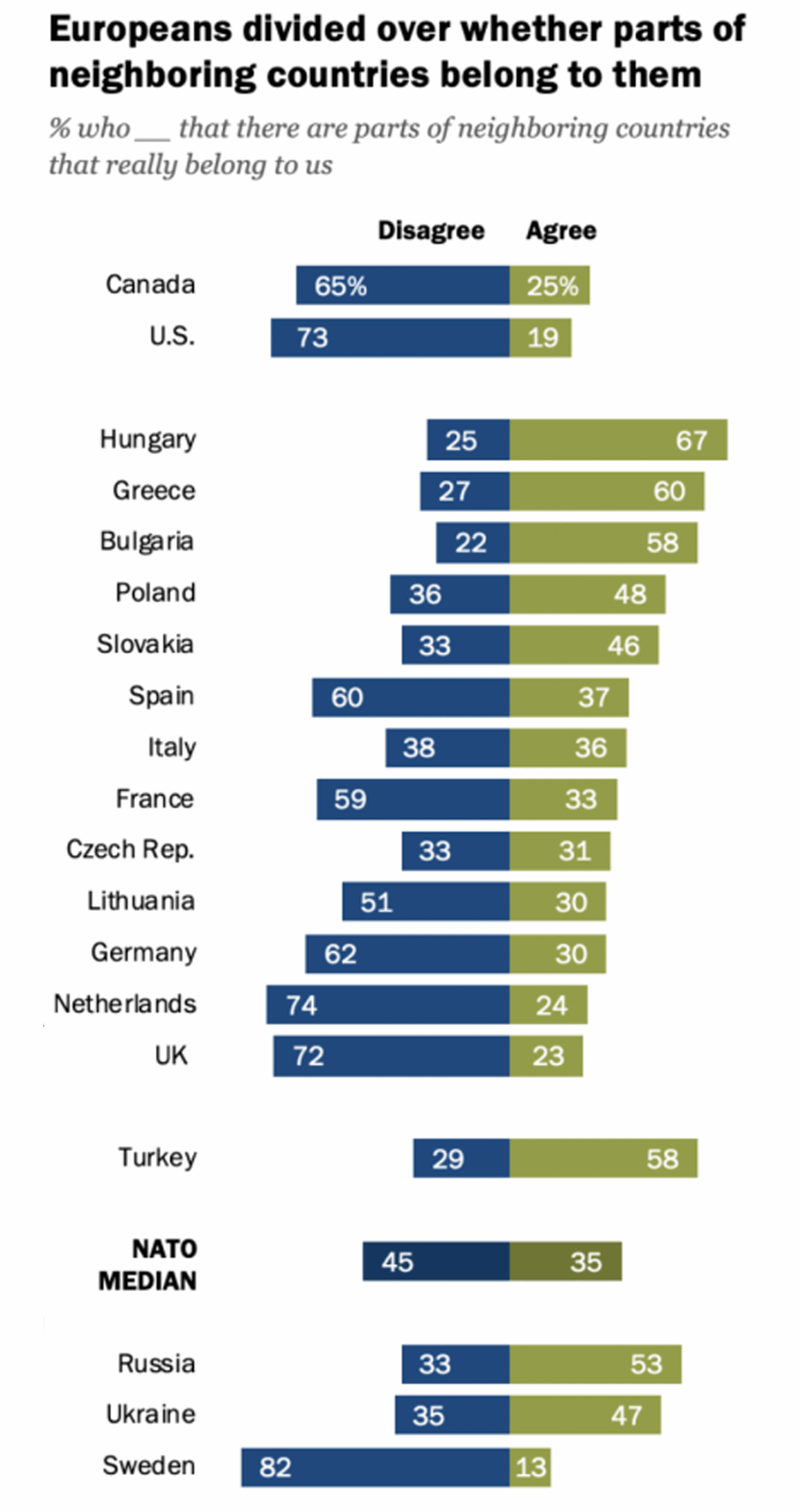

The Pew Research poll, compared with little pre‑war demand for aggression from Russian public opinion, clearly disproves the notion that Russians possess some form of “perpetual imperialism as part of their DNA” — rather, we see a quite common and widespread babble about “historically incorrect borders,“ not truly supported by any desire to take action to retake the lands in question.
While many Russians do share a responsibility with Putin for waging the war of aggression against Ukraine, it is, in reality, much more Putin’s war than Russia’s war, as proven by all objective data.
The Pew Research poll, compared with little pre‑war demand for aggression from Russian public opinion, clearly disproves the notion that Russians possess some form of “perpetual imperialism as part of their DNA” — rather, we see a quite common and widespread babble about “historically incorrect borders,” not truly supported by any desire to take action to retake the lands in question.
While many Russians do share a responsibility with Putin for waging the war of aggression against Ukraine, it is, in reality, much more Putin’s war than Russia’s war, as proven by all objective data.
Interpreting the September 2024 Russian elections
By Olga Gushchina
October 10, 2024
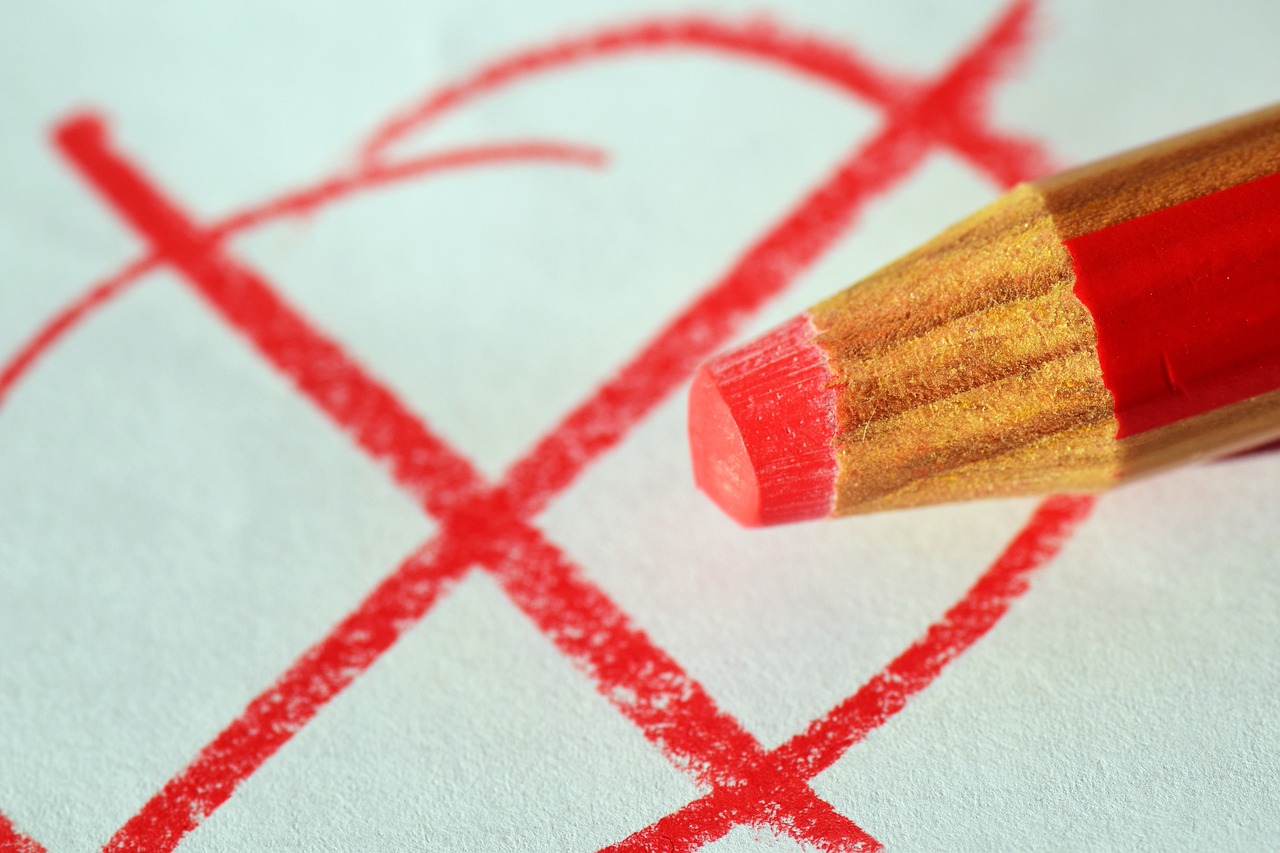 Article
Article By Vladimir Milov
July 03, 2024
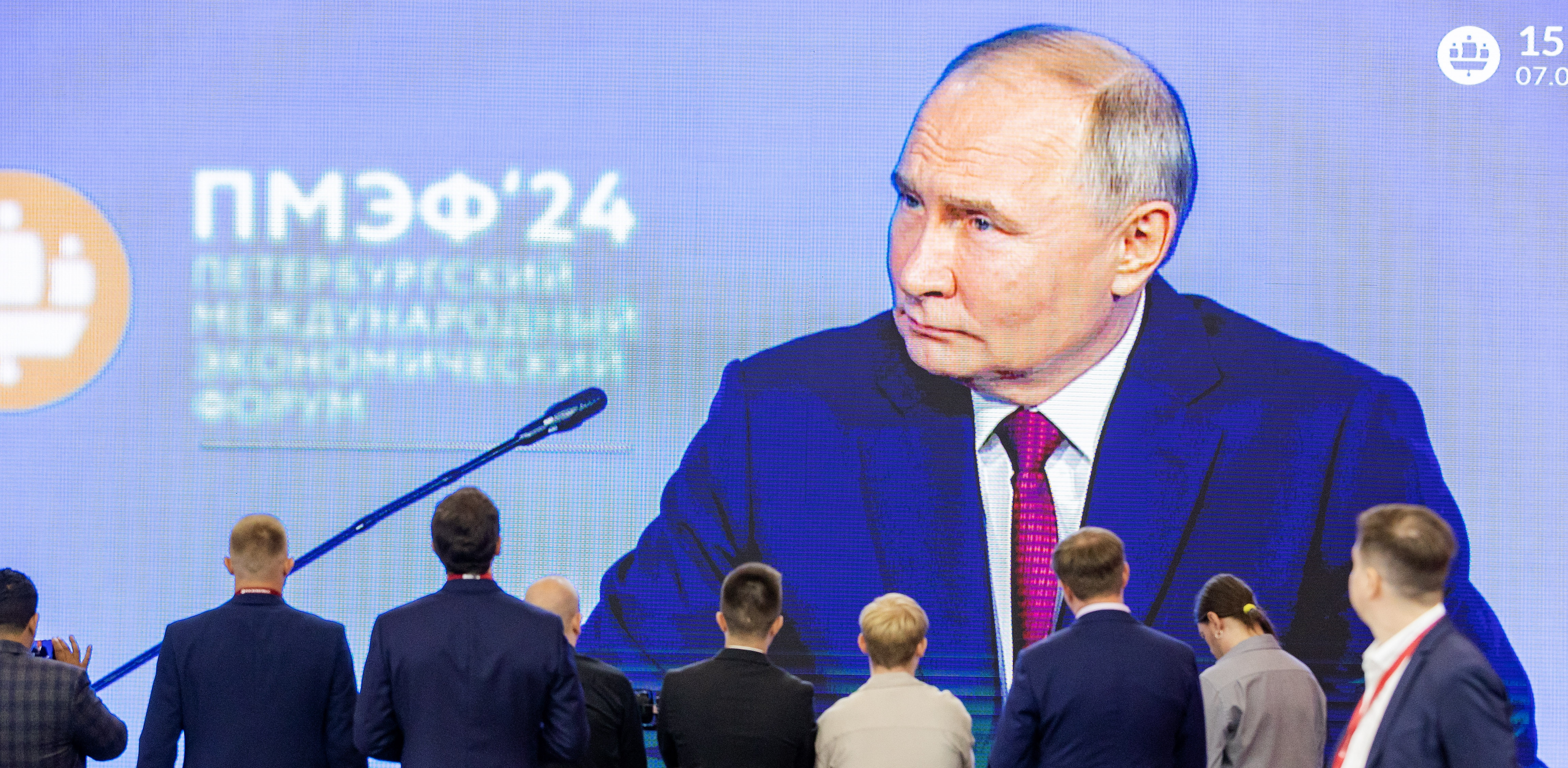 Article
Article Putin’s difficulties are plenty and mounting
By Vladimir Milov
June 04, 2024
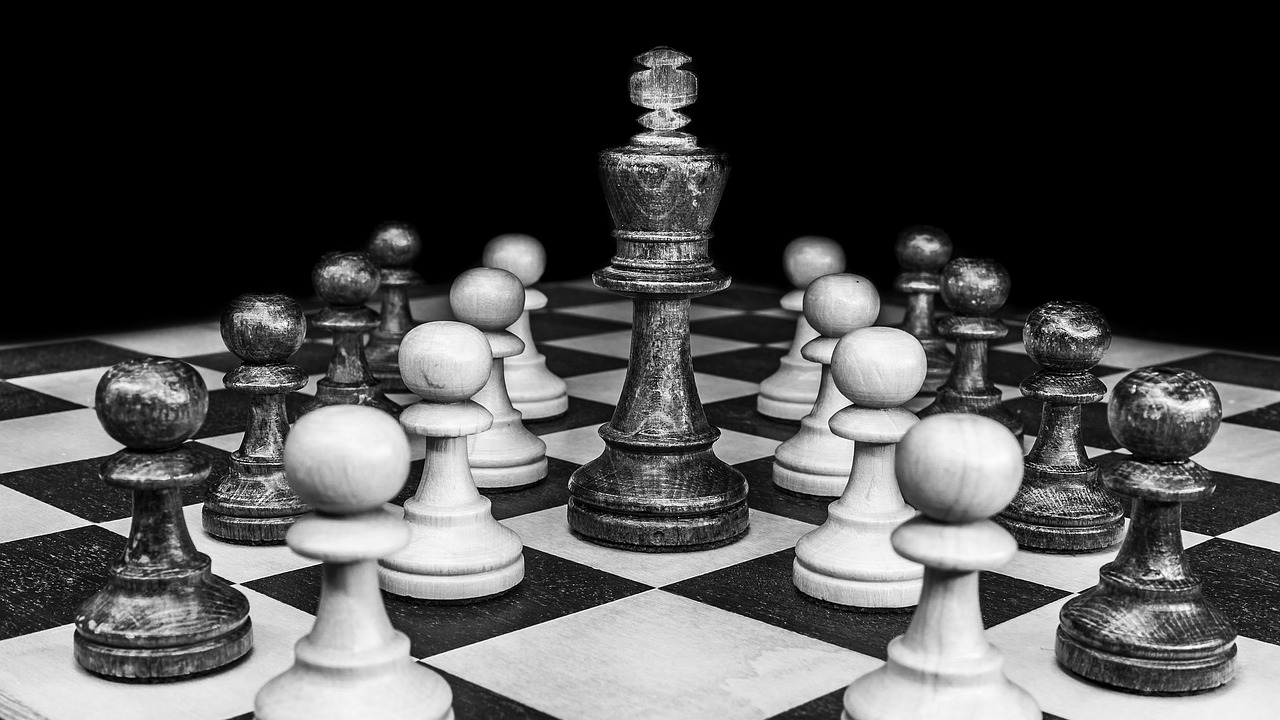
Interpreting the September 2024 Russian elections
By Olga Gushchina
October 10, 2024
 Article
Article By Vladimir Milov
July 03, 2024
 Article
Article Putin’s difficulties are plenty and mounting
By Vladimir Milov
June 04, 2024
